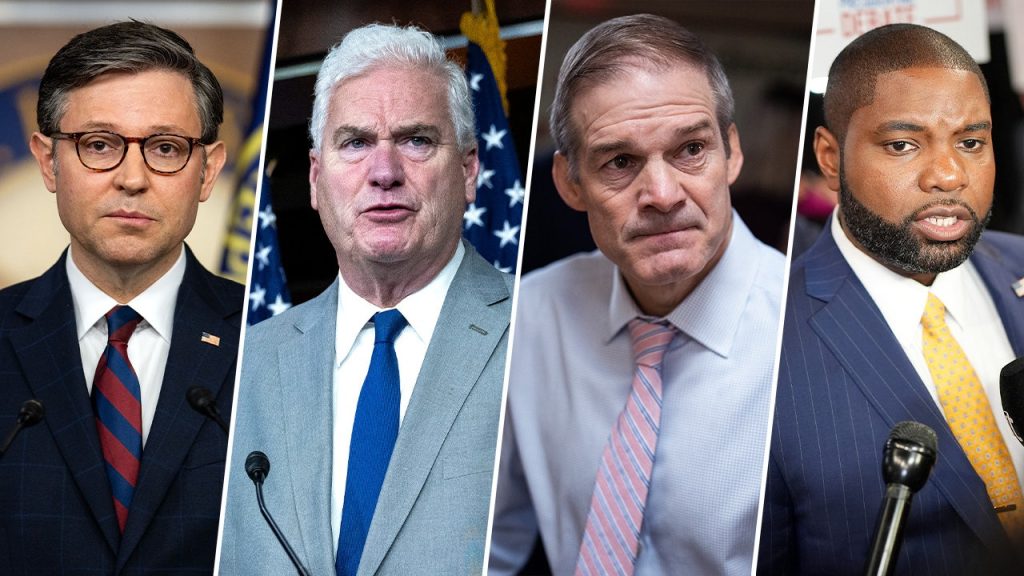The nascent speakership of Mike Johnson is facing early turbulence as House GOP critics express discontent over his handling of government funding negotiations, specifically the proposed continuing resolution (CR) to avert a government shutdown. Whispers of potential challengers have already begun circulating within the Republican ranks, with names like House Majority Whip Tom Emmer, House Judiciary Committee Chairman Jim Jordan, and Rep. Byron Donalds emerging in preliminary discussions. While these individuals have publicly affirmed their support for Johnson in the past, the undercurrent of dissent underscores the fragility of his position and the potential for a leadership challenge in the upcoming January 3, 2025 House speaker vote. These early rumblings are a clear warning shot from a faction of Republican lawmakers vehemently opposed to the short-term spending bill.
The controversy primarily stems from the nature of the CR, a 1,547-page document packed with various policy riders deemed extraneous by conservative hardliners. These riders, covering areas like healthcare, ethanol fuel, disaster aid, infrastructure projects, and even a congressional pay raise, have drawn sharp criticism from those who favor a “clean” extension of government funding, focused solely on essential operations. The inclusion of these provisions has fueled accusations of backroom deals and a departure from fiscal conservatism, further exacerbating the tensions within the GOP. This discontent has created an environment ripe for potential leadership challenges, with Johnson’s critics viewing the CR as a strategic misstep that could cost him the speakership.
Adding to the complexity of the situation is the involvement of figures outside of Congress. Elon Musk and Vivek Ramaswamy, both influential voices within conservative circles, have publicly denounced the spending bill, adding external pressure to the internal dissent within the House GOP. Their criticisms resonate with the hardline faction and further undermine Johnson’s position, highlighting the broader dissatisfaction with the proposed CR. While Johnson and his allies maintain that the bill represents the best possible outcome under divided government, these external voices amplify the calls for a different approach and potentially a different leader.
Despite the brewing storm, Johnson remains outwardly confident, dismissing concerns about a potential challenge to his speakership. He and his supporters argue that the CR is a necessary compromise to avert a damaging government shutdown, particularly during the holiday season, and that Republicans will be in a stronger position to negotiate funding priorities once President-elect Donald Trump takes office. This argument hinges on the premise that a unified Republican government will have greater leverage in future budget negotiations, allowing for a more fiscally conservative approach. However, this long-term strategy does little to assuage the immediate concerns of those who view the current CR as unacceptable.
While the names of Emmer, Jordan, and Donalds have been floated as potential alternatives, their actual willingness to challenge Johnson remains unclear. Publicly, they have expressed support for Johnson, and sources close to them have either denied interest or remained noncommittal. The political calculus for any potential challenger is complex, involving weighing the potential benefits of a leadership bid against the risk of alienating colleagues and potentially fracturing the party. The dynamics of a speakership challenge are further complicated by Donald Trump’s endorsement of Johnson, which carries significant weight within the Republican party.
The situation remains fluid, with the potential for both escalation and de-escalation. The intensity of the opposition to the CR, the level of support for potential challengers, and the effectiveness of Johnson’s efforts to rally support will all play crucial roles in determining the outcome. While Johnson currently holds the speakership and enjoys the backing of Trump, the simmering discontent within the House GOP suggests that his position is far from secure. The January 3rd speaker vote looms as a potential flashpoint, with the possibility of a leadership challenge hanging in the balance.















